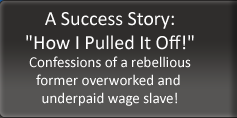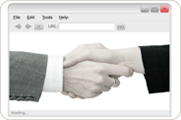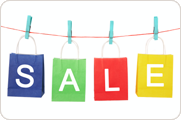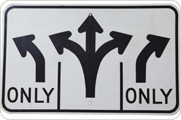
Successful Money Maker on
the Internet
of Words About My
Background
Business... And How It
Failed Miserably!
What It‘s Like to Hit Rock
Bottom!
My Life...and My Entire
Destiny!
Paid Off...My First “Internet
Job”!
Internet Industry...My
Appetite Only Grew
Business...and How it
Crashed to Pieces
to Be My LAST Soul Sucking
Job Ever!
Simple Way to Make Money
on the Net
Auctions...and Found a
Cache of Cash
to Earn Decent Money on
the Web
Job...I Was Finally Off the
Slave Boat
Home Full Time... Fulfilling
my Dream
Successful Internet Home
Business Owner
When They Try to Make
Money!
in Earning Long-Term
Income Online
Can You Start Earning
Money Online?


Free Guide: Making Money by Promoting
Affiliate Programs
Affiliate programs represent one of the most effective
ways to generate income from
your website.
How does the affiliate business work?
How can you be an extremely successful affiliate?
And how can you turn your
site's visitors into cash?
This free guide explains how it all works.

You're about to learn how to start making
money by joining Internet-based
affiliate
programs.
This guide takes a few minutes to read, but after you finish it, you'll have
basic knowledge about affiliate programs, how they work and the required
“secret ingredients” for becoming a successful affiliate.
Let's start!
Sound like a complicated definition?
Well, it's not.
Let's try to define it with even simpler words:
![]() You
put a link on your site to an advertiser's site.
You
put a link on your site to an advertiser's site.
![]() A
surfer on your site clicks on that link and buys something or signs up for a
free offer on the site you linked to.
A
surfer on your site clicks on that link and buys something or signs up for a
free offer on the site you linked to.
![]() You're
getting paid for the successful referral and receive a commission.
You're
getting paid for the successful referral and receive a commission.
Sound clearer?
The next step is to understand the popular types of programs that you can
join.
How PPS Programs Work?
 When
you work with pay-per-sale affiliate programs, you're being paid whenever a
visitor
When
you work with pay-per-sale affiliate programs, you're being paid whenever a
visitor on your site clicks on an affiliate link, goes to the advertiser's site and buys something there.
These types of programs are typically being run by shopping sites or by Internet retailers who sell various products or services on the web.
When “your” surfer is buying something on the vendor's site, you're earning a commission.
You join a poster shop affiliate program and place links to this shop on your website.
Whenever a visitor from your site clicks on an affiliate link, he's being forwarded to the poster shop website.
If he buys nothing, you're not being paid.
If he buys anything (like art posters), you're getting a commission for the sale, for referring that paying customer.
Here are a few credible affiliate networks, with good history and a positive track record, where you can join “Pay Per Sale” programs in many niches:
How PPA Programs Work?
What's an action?
An action can be various activities such as filling out a form with his contact details (a lead), signing up to a website, joining a free trial, filling out a free quote request, etc.
This model is also called Pay-Per-Lead, because that's what the advertiser is basically getting from you as an affiliate: leads that he can later convert to sales and from which he can profit.
These types of programs are being run by lots of types of sites, like insurance companies, online game sites, dating services, free sample providers and so many others (almost in any market niche).
You join a car insurance affiliate program and put links to this company's offer.
Whenever a visitor from your site clicks on the affiliate link on your website, he's being forwarded to the car insurance site – where he sees a form that he needs to fill out in order to receive his free quote by email.
He needs to enter various personal details, like his name, age, address, car model etc – so the company can send him a personalized quote, tailored to his specific car and his individual profile.
If he doesn't fill out the request form, you're not getting paid.
If he does fill out this form, you're earning a commission for the lead.
As far as you're concerned, it doesn't matter whether he buys insurance or not, at the end of the cycle.
You're being paid strictly for successful leads that you generate.
Here are a few established and reliable affiliate networks, with good history and a positive track record, where you can join “Pay Per Action” (Pay Per Lead) programs in almost any niche or business sector:
When you work with PPC affiliate programs, you're being paid whenever a
visitor on your site clicks on an affiliate link.
Basically, you're being paid for nothing but sending users to the advertiser's
site.
In the past, there were a lot of affiliate programs that worked with this
model; however, after Google launched its “Google Adsense” program, it became
the main player in this field.
If you're interested in working with this model, read our in-depth guide:
How to advertise Pay-Per-Click ads on your site.
You can work with affiliate networks and you can choose to work with independent in-house programs too.
Let's try to understand the meaning of working with each type.
 Affiliate
networks are large online advertising companies that provide aggregation and
tracking services to both affiliates and merchants.
Affiliate
networks are large online advertising companies that provide aggregation and
tracking services to both affiliates and merchants.From an affiliate point of view, a network is a huge marketplace or directory, where he can easily find a large number of opportunities under any possible topic (like business, travel, education, finance, entertainment and countless of other topical categories).
The networks provide three major advantages to affiliates:
![]() Since
everything is tracked and monitored by a reputable third party company (the
affiliate network), the odds for not receiving your commission are extremely
low.
Since
everything is tracked and monitored by a reputable third party company (the
affiliate network), the odds for not receiving your commission are extremely
low.
![]() You can
promote several programs from one network and get paid for the revenues of all
of them by one unified payment source, through one check.
You can
promote several programs from one network and get paid for the revenues of all
of them by one unified payment source, through one check.
Fewer payment sources – less hassle.
This may discourage a lot of affiliates, due to fraud and non-payment concerns, but it's worth saying that there are many reputable companies that run programs independently and have a very positive reputation
Naturally, there are a lot of advantages in partnering to affiliate
networks and that's a safe strategy for any affiliate marketing beginner.
However, after gaining some experience, you shouldn't rule out working with
in-house managed programs.
Sometimes, you may encounter an independently run affiliate program that is an
ideal match to your site's content and audience and it shouldn't be
disqualified just on the merit of not having third party monitoring.
If the company is known to be honest, if it has a good reputation and no
significant complaints from fellow Internet marketers, there's no reason not
to test it.
Choosing an Offer in Your Niche
When you're choosing an affiliate program to work with, here's the #1 factor you should look at: the relevancy of the offer to your site's content and how well it matches your audience's profile.
If you have a gardening-related site, you should always prefer promoting gardening related affiliate programs (or at least something close to this niche that will compliment it).
For example: if you refer your gardening site visitors to travel or health-related offers, you'll see a very low success rate.
On the other hand, if you refer visitors to gardening-related offers, you'll have a much higher rate of success.
Many newbies are tempted to work with high paying programs, which have zero relevancy to their site's theme.
The high commission that is offered often blinds their good judgment.
This leads to poor conversions (no sales, leads, etc) – and consequently, no or very little income from these non-related programs.
There's no easy answer for that and it depends on each individual site and sometimes, on each individual page upon which you plan to place affiliate links.
However, as an affiliate, it's much easier to generate leads than sales.
When it comes to a lead, the surfer doesn't need to pull his credit card out of his wallet and use it.
All he has to do is fill out a simple form with some basic details.
It generates much higher conversions and can lead, in many cases, to higher profits.
For example, many insurance sites pay $8, $10 and even $12 for a single lead.
You send a visitor to fill out a free insurance quote request and you're receiving a pretty fat commission in return.
Here are some more stats: a good shopping site has a conversion rate of 1%-1.5%, meaning that out of every 100 visitors, one visitor (or slightly more) actually makes a purchase and by that – entitles you to a commission.
When it comes to leads, it's very common to see conversion rates of 10%, 15% and even 30%.
If you find good “per lead” programs that correspond well with your site's niche – it's a safe bet.
If you don't, it's better to use “per sale” programs that are related to your site than using totally non-related offers.
Here are some basic affiliate tips that will help you make more money with affiliate programs.

one program can fail, others can make you tons of money.
![]() Choose programs with products or services that will really benefit your users
(and not just your bank account).
Choose programs with products or services that will really benefit your users
(and not just your bank account).
Being useful to your audience is a key ingredient for achieving success.
![]() Try
various promotional ad copy alternatives to motivate and encourage your users
to click on your affiliate links.
Try
various promotional ad copy alternatives to motivate and encourage your users
to click on your affiliate links.
Test different approaches and “tones” (hard sale, soft sale, humorous, informative, mysterious, etc).
![]() Put
affiliate links in a visible place – preferably, within the content itself.
Put
affiliate links in a visible place – preferably, within the content itself.
You will not earn money if no one sees your affiliate links or clicks on them.
![]() Many
affiliate networks, especially the CPA ones, run the same offers as their
competitors.
Many
affiliate networks, especially the CPA ones, run the same offers as their
competitors.
Join ALL the leading networks and compare which one offers the highest
commission for the offer that you're interested in promoting on your site.
![]() Don't
have unrealistic expectations of making thousands, or even hundreds of dollars
on day one; that will lead you to bitter disappointments.
Don't
have unrealistic expectations of making thousands, or even hundreds of dollars
on day one; that will lead you to bitter disappointments.
Target your initial efforts to make your first $5 and the rest will follow
naturally and gradually, after gathering more experience and sharpening
your affiliate marketing skills.
![]() Don't
bombard each of your website's pages with 3,478 affiliate links.
Don't
bombard each of your website's pages with 3,478 affiliate links.
It will irritate your site audience and generate unnecessary antagonism.
Start with 1-5 links per page, analyze the results and move on from there.
Let's walk you through the process – it's pretty simple:
Pay per Lead Networks: Azoogle Ads, NeverblueAds, Copeac, Max Bounty.
Pay per Sale Networks: CJ – Commission Junction, Shareasale , Linkshare.
![]() Read
each offer's description, terms and offered commission rate.
Read
each offer's description, terms and offered commission rate.
![]() Choose
the offers that you wish to promote and place the special affiliate links that
you'll be given on your site (that's how your visitors will be tracked).
Choose
the offers that you wish to promote and place the special affiliate links that
you'll be given on your site (that's how your visitors will be tracked).
![]() Check the
results: visit the affiliate network's statistics panel from time to time to see how much you've earned.
Check the
results: visit the affiliate network's statistics panel from time to time to see how much you've earned.
It's very common for people in the affiliate business to make between a few hundred to a few thousand dollars per month.
Naturally, the top 5%, who are called “Super Affiliates”, make much more and some of them make as much as millions per year
It depends on each individual program (or affiliate network) that you're using; but the most common ways are checks and through Paypal.
Lots of affiliates live well from their work.
practical tips, guidance and shorten the learning curve for any beginner.
![]() Super
Affiliate Handbook
- Probably the best A-Z guide ever written for beginners on how to do well
with affiliate programs.
Super
Affiliate Handbook
- Probably the best A-Z guide ever written for beginners on how to do well
with affiliate programs.
![]() "Affiliate
Marketing" defined by Wikipedia
"Affiliate
Marketing" defined by Wikipedia
![]() "Affiliate Program" defined by Webopedia
"Affiliate Program" defined by Webopedia
![]() A Best Web –
An affiliate marketing forum.
A Best Web –
An affiliate marketing forum.

